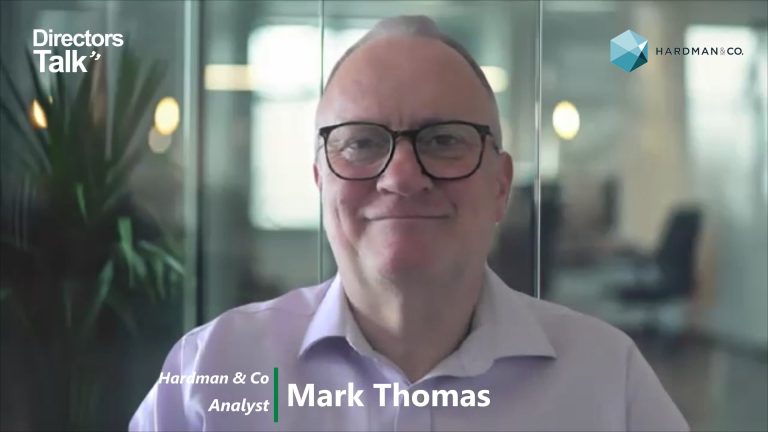H&T Group plc (LON:HAT) is the topic of conversation when Hardman and Co’s Analyst Mark Thomas caught up with DirectorsTalk for an exclusive interview.
Q1: You called your recent piece ‘Pawnbroking’scurrentappeal’, what can you tell us about it?
A1: In our 15 March initiation ‘Pawnbroking royalty, with strong, profitable growth’ we highlighted that H&T Group’s core is pawnbroking and related retail services operations.
As other small-sum, short-term lenders have withdrawn at a time of heightened demand, the company is well-capitalised, low-risk proposition has unique growth opportunities, which are expected to fuel strong earnings growth – 2024E EPS 4.2x 2021 levels. We also note that the dividend is progressive with 2024E yield of over 5% giving investors income as well as potential capital growth. Their May AGM trading statement confirmed our positive expectations.
In this note, we focused on the reduction in competition at a time of heightened demand and the low-risk nature of H&T’s pawnbroking business.
Q2: You highlight the growth in the pledge book as a key driver to bottom-line growth, what is driving that growth?
A2: The pawnbroking pledge book saw strong growth, rising to ca.£106.5m at the end of April, from £100.7m at 31 December 2022, despite recent above-normal redemption, expected to have short-term impact, as some customers wanted their jewellery for Coronation events. Despite this drag, the growth is in line with our full-year forecast, so the underlying growth is ahead of our strong growth expectations.
Looking at demand, most customers use pawnbroking loans to fund day-to-day living expenses – so demand for the company’s loans is growing, because the cost-of-living crisis is putting greater pressures on customer cashflows. This positive dynamic has come at a time of real constraints on the supply of short-term, small-sum credit. Some competitors have been killed by claims management companies – CMCs – a risk to which they are only marginally exposed. Credit unions have moved to larger lending, and most branch-based, small-sum, short-term lenders have closed.
They have also been growing their market share of pawnbroking. At a time of growing demand, the company’s long-term, competitive, positive position has never been stronger.
Q3: You expressed confidence in the resilience of the model to downturns, what can you say about that?
A3: In times of economic challenges, customer cashflows are constrained, and so the demand for pawnbroking is likely to rise. They should not be thought of as a lender, because there is no recourse to the customer – only the asset pledged. This gives it a very different risk and accounting impairment profile from lenders, and, looking beyond the unhelpful accounting, actual losses have been very small.
The bottom line is that, recognising the slightly different business mix and accounting, the company’s profits were robust through the early 1990s’ recession, the GFC and COVID-19.
Q4: What about non-pawnbroking businesses?
A4: Retail sales, to the end of April, were up 13% YoY, margins have continued to moderate, as expected, primarily because of mix. Forex revenues are up 10% YoY, gold purchase volumes have been in line with forecasts and scrap margins continue to benefit from a strong gold price.
Q5: What about the risks?
A5: H&T Group’s customers are cash constrained. Their business money laundering and stolen goods risk is above average, but our detailed review of their controls show them to be good. We believe sentiment to the industry is a specific risk, and the company has a strong, ongoing communication programme to address what are often outdated or simply incorrect assumptions.
Inflation risk to the cost base is also a specific short-term consideration, but they have many fixed costs, and we expect strong operational leverage from the business growth in our forecasts. We have a whole section of the report explaining our view that H&T is low risk.








































